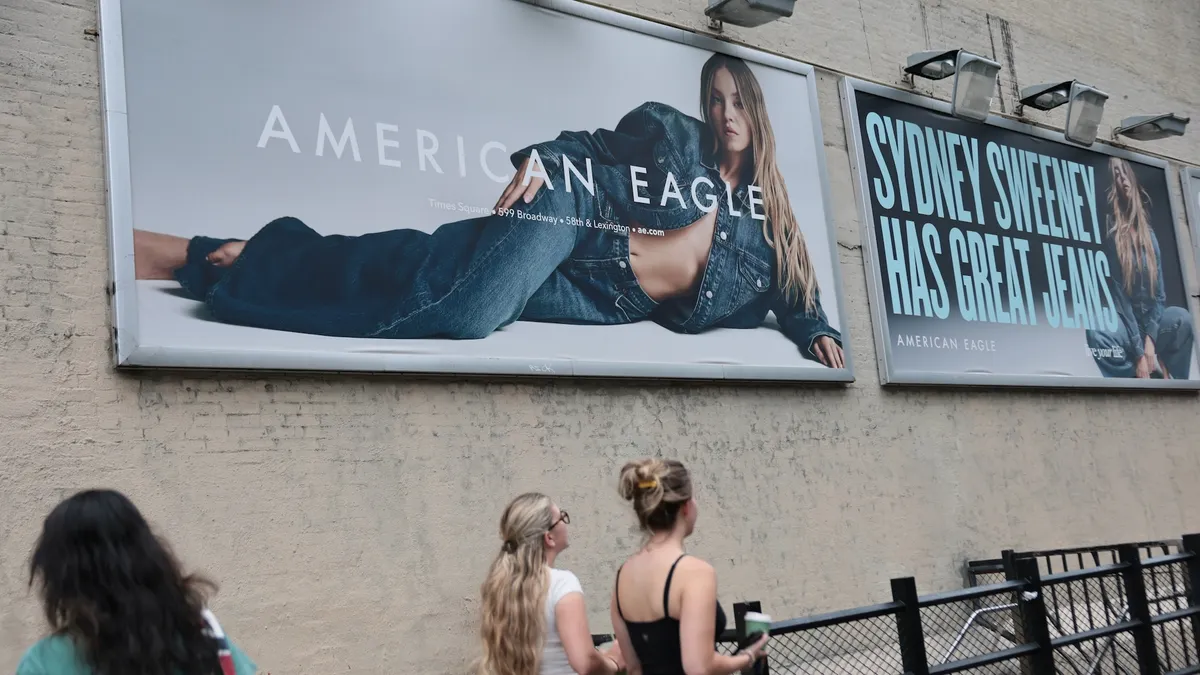The turbulence in the financial markets last week was a reminder that the economic recovery in the U.S. may not be entirely safe.
All that new consumer confidence and increased spending may be hitting pause, just when retailers are making plans for the holidays.
The bumps may have also spooked millennial consumers, who came of age during the Great Recession. Saddled with debt from their educations, millennials have honed their money-saving skills and shifted their spending priorities — away from retail. When shopping, millennials are not only looking for a deal, but also products that go beyond their basic everyday needs. They're looking for connection, value, and a shopping experience that will make them feel good about what they buy.
The downside of sharing
It’s not just millennials’ infamous levels of college debt or the discouraging job market they found when they graduated that are changing retail. More millennials have also shifted to urban living, which naturally means rented homes, smaller homes, and more easy sharing of homes and cars. As a result, they need less furniture and other things, and spend less money — and not always just because they have less money to spend, but sometimes because they’re apt to share.
“The types of properties young people are buying now are different from what [that age group] bought five years ago,” Shannon Williams King, vice chair of strategic planning at the National Association of Realtors, told The Atlantic in 2012. “They are within walking distance of shopping centers. These buyers want bike shares and Zipcar. They like feeling connected.”
Understanding millennial loyalty
For a while, retailers kept hearing that millennials are not brand loyal. And to some extent, that’s true. Consumers of that generation (reaching young adulthood around the year 2000) have no qualms about trying out cheaper store brands, for example, and a certain lack of trust means they’re less vulnerable to the charms of advertising, especially from “mass marketers.”
Still, millennial consumers in great numbers find paid loyalty programs useful, with most saying they value free shipping and discounts. And there are ways to communicate with millennials beyond traditional advertising, through content like blogs and magazines that they often access via social media.
Millennials are 'life hackers'
In line with this thrifty mindset, millennials are also finding small ways to cheat the system to get deals. We’re not talking outright fraud here, but it turns out that millennials find that their digital nativism comes in handy when signing up for retail “specials” like birthday deals or free shipping offers, according to research from Mindshare.
Some 26% of millennials have given a retailer a bogus birthday date for discount, compared to 17% of all adults, and 36% use multiple email addresses get one-time-only deals, compared to 30% of everyone, the research found. Finally, remember, they’re sharers; 36% of millennials share a $99-a-year Amazon Prime account, compared to 24% of all adults.
Meanwhile, perhaps of utmost importance to retailers, 47% of millennials place items in their shopping carts and leave, in hopes of getting an email that sweetens the deal to entice them back; just 36% of the general population does that, Mindshare found.
Old-fashioned frugality
While some of millennials' shopping habits differ from the general population, this shopper may not such a new animal. Think of the mid-twentieth century, when most things, from shoes to toasters, were made to last.
"Appliances built prior to 1960 were designed to be serviced and maintained," John Jowers, who runs appliance restoration company AntiqueAppliances.com, told Reviewed.com. "Parts for these appliances could be rebuilt and reused rather than a replacement being needed."
Perhaps the vintage looks that many millennials favor are in part an attraction to, even an alliance with, that level of value. Many say they get more out of a trip with friends than owning more clothes, so it's really no wonder they’ll splurge on a good smartphone. For one thing, even the best phones are still cheaper than car payments plus insurance. And while cars sit unused for much of the day, smartphones connect people to each other, to information, to entertainment. And those are the things that millennials value, all day long.
Among clothing brands, millennials look for chic fashion and bargains, although that’s changing somewhat as their spending power amps up. Even fast-fashion, teen-oriented retailers are reportedly offering more mature looks with longer-lasting, nice-to-the-touch fabrics. Athletic brands feature heavily on one recent list of millennial favorites — reflecting both the generation’s more casual approach to career wear and its dedication to staying fit.
And, ultimately, especially if the economy continues to stay somewhat healthy despite its recent stumbles, millennials' growing spending power is leading many to purchase longer-lasting, higher quality things. Maybe not many more things, but better ones. (Even if, most likely, they’ll still be looking for a perk when buying.)
That 'feel good' feeling
Bottom line, concluded Nielsen in its report last year titled “Millennials - Breaking the Myths,” millennials aren’t such radical consumers. What makes them feel good about what they buy is just different. They're different from their parents or, more specifically, Baby Boomers. Retailers and their marketers have been conditioned by that large, mostly well-educated and ultimately rather flush generation, and some of retailers' marketing, pricing, and merchandising habits may have to change.
“[Millennials] are savvy shoppers always on the lookout for a good deal,” Nielsen wrote. “They put a premium on authentic, handmade, locally produced goods – and they’re willing to pay more for products from companies with social impact programs. Getting a good deal is a priority, but they won’t compromise on quality. They want to feel good about what they buy.”






















